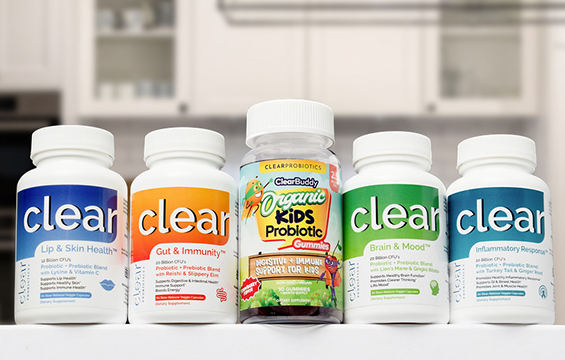Table of Contents
ToggleBreastfeeding significantly contributes to a healthy microbiome in babies, enhancing their overall health. It provides essential bacteria and prebiotics, crucial for early development.
Direct breastfeeding further boosts the transfer of beneficial organisms, underscoring the importance of breastfeeding for newborns and infants.
A nurtured microbiome in the first three years actively lowers the risk of chronic illnesses like asthma and obesity. Various factors, including the mother’s health and breastfeeding duration, influence the microbiome.
Even if exclusive breastfeeding is not possible, probiotics can still support the health of formula-fed babies by enhancing microbial diversity and strengthening the microbiome.
The probiotic strain L reuteri DSM 17938 safely and effectively eases colic in breastfed babies. Probiotics also benefit babies with a family history of allergies and other conditions, helping to maintain a healthy microbiome and reduce the risk of these issues.
Key Takeaways:
- Breastfeeding is crucial for establishing a healthy microbiome in babies and promoting optimal infant health.
- Breast milk contains beneficial bacteria and prebiotics that nourish the microbiome.
- Factors like the mode of delivery, the mother’s microbiome and stress levels, antibiotic use, and the duration of breastfeeding influence microbiome development.
- Probiotics can be used to optimize the health of formula-fed babies and promote healthy gut flora and microbial diversity.
- Consult a qualified practitioner and choose probiotics with evidence of safety and effectiveness in infants.
Understanding the Benefits of Breast Milk Probiotics
Breast milk probiotics offer a range of benefits for infants, including boosting their immune system and promoting healthy gut flora. Breastfeeding is a crucial factor in establishing a healthy microbiome in babies, which has long-term implications for their overall health.
Breast milk contains beneficial bacteria and prebiotics that nourish the microbiome, helping to support the growth of beneficial organisms.
Feeding directly from the breast is the most effective way to facilitate this process, as it increases the transfer of these beneficial microorganisms.
A healthy microbiome developed in the first three years of life can lower the risk of chronic diseases such as asthma, obesity, allergies, and neurodevelopmental disorders.
Various factors influence the development of a healthy microbiome, including the mode of delivery, the mother’s microbiome and stress levels, antibiotic use, and the duration of breastfeeding.
It is important to consider these factors and promote strategies that support the establishment of a healthy microbiome in infants.
While breastfeeding is ideal, it is important to note that formula-fed babies can still maintain good health.
Probiotics can be used to optimize health for all infants, including those who are formula-fed. One specific probiotic, L reuteri DSM 17938, is safe and effective in easing colic in breastfed babies.
Probiotics can also be beneficial for babies with a family history of allergies, eczema, asthma, and behavioral issues. It is essential to choose probiotics that have evidence of safety and effectiveness in infants and to consult a qualified practitioner before introducing them to your baby.
Factors That Influence Microbiome Development
Several factors, including the baby’s gut health, the mother’s microbiome, and antibiotic use, play a significant role in shaping the development of a baby’s microbiome.
The microbiome, which refers to the trillions of microorganisms that reside in and on our bodies, is essential for maintaining overall health and well-being.
Specifically, a healthy microbiome in early childhood is crucial for immune system development, nutrient absorption, and protection against harmful pathogens.
A baby’s gut health is particularly important in microbiome development. The gut is home to a diverse range of microorganisms, and the composition of these bacteria can have a lasting impact on the baby’s health.
Breastfeeding, with its beneficial bacteria and prebiotics, supports the growth of a healthy gut microbiome. Research has shown that breast milk contains important antibodies and immune factors that contribute to the establishment of a robust microbial community in the baby’s gut.
“Breastfeeding provides the best opportunity for nurturing a baby’s microbiome, as it contains a unique blend of beneficial bacteria and prebiotics that support the growth and diversity of the gut microbiota.”
Another factor that influences microbiome development is the mother’s microbiome. During pregnancy and birth, the mother passes on her own collection of microorganisms to her baby.
This transfer of microbes from mother to child contributes to the initial colonization of the baby’s gut and plays a role in shaping the developing microbiome.
Therefore, a healthy maternal microbiome, which can be influenced by factors such as diet, stress, and antibiotic use, is essential for establishing a healthy microbiome in the baby.
Antibiotic use, especially during pregnancy and early infancy, can have a profound impact on the development of the microbiome. While antibiotics are essential for treating bacterial infections, they also disrupt the delicate balance of bacteria in the gut.
This disruption can lead to a less diverse and potentially less healthy microbiome in the baby. Therefore, it is important to use antibiotics judiciously and only when necessary to minimize their impact on the developing microbiome.
Table: Factors That Influence Microbiome Development
| Factors | Description |
|---|---|
| Baby’s Gut Health | The gut microbiome of the baby plays a crucial role in shaping its overall health. Breastfeeding supports the growth of a healthy gut microbiome through the transmission of beneficial bacteria and prebiotics. |
| Mother’s Microbiome | The mother’s microbiome is passed on to the baby during pregnancy and birth, influencing the initial colonization of the baby’s gut microbiome. A healthy maternal microbiome is essential for establishing a healthy microbiome in the baby. |
| Antibiotic Use | The use of antibiotics, especially during pregnancy and early infancy, can disrupt the balance of bacteria in the gut and impact the development of a healthy microbiome in the baby. |
Probiotics for Optimal Infant Health
Use probiotics to enhance your infant’s health, even if they are formula-fed, by fostering a healthy gut flora and microbial diversity.
They boost the growth of beneficial bacteria and curb the growth of harmful ones, leading to a bolstered immune system, lowered risk of infections, and enhanced overall health.
Specifically, the probiotic strain Lactobacillus reuteri DSM 17938 demonstrates notable effectiveness in boosting infant health.
Thorough research confirms its effectiveness in reducing colic and easing symptoms like excessive crying, providing essential relief for babies and parents.
| Benefits of Probiotics for Infants | Sources |
|---|---|
| Promote healthy gut flora | Source |
| Enhance immune system function | Source |
| Reduce the risk of infections | Source |
Probiotics may also offer benefits for babies with a family history of allergies, eczema, asthma, and behavioral issues.
They actively support healthy gut flora and microbial diversity, playing a crucial role in enhancing infant health.
Whether you are breastfeeding or formula feeding, adding probiotics to your baby’s routine can contribute significantly to their long-term overall well-being.
Consultation and Safety Guidelines for Probiotic Use
When considering probiotics for infants, it is important to seek guidance from a qualified healthcare practitioner.
They can provide personalized recommendations based on your baby’s specific needs and health conditions.
Look for probiotics that have been thoroughly tested and have evidence of safety and effectiveness in infants.
- Consult a qualified healthcare practitioner for personalized recommendations
- Choose probiotics with evidence of safety and effectiveness in infants
- Follow the recommended dosage and administration instructions
Remember to always prioritize the health and well-being of your baby. With proper guidance and care, probiotics can be a valuable tool in nurturing your baby’s gut health and promoting optimal overall health.
Consultation and Safety Guidelines for Probiotic Use
When considering probiotics for infants, it is essential to consult a qualified practitioner and choose those with proven safety and effectiveness, especially for babies with a family history of allergies, eczema, asthma, and behavioral issues.
We understand the importance of ensuring optimal health for your baby, and that includes making informed decisions about probiotic use.
When choosing a probiotic, look for evidence of safety and effectiveness in infants. It’s important to select probiotics that have undergone rigorous testing and have shown positive outcomes in clinical trials.
Babies with a family history of allergies, eczema, asthma, and behavioral issues may benefit from probiotic supplementation. Research suggests that probiotics can help modulate the immune system and reduce the risk of developing these conditions.

FAQ
What is the role of breastfeeding in establishing a healthy microbiome?
Breastfeeding plays a crucial role in establishing a healthy microbiome in babies. It increases the transfer of beneficial bacteria and prebiotics from the mother to the baby, nourishing the microbiome and promoting optimal gut health.
Does formula feeding impact a baby’s microbiome?
While breastfeeding is ideal for promoting a healthy microbiome, formula-fed babies can still be healthy. However, it is important to note that breastfeeding directly from the breast supports the transfer of beneficial organisms that contribute to a robust microbiome.
What factors influence microbiome development in babies?
Several factors influence microbiome development in babies, including the mode of delivery, the mother’s microbiome and stress levels, antibiotic use, and the duration of breastfeeding. These factors can impact the long-term health outcomes of the baby.
Can probiotics optimize infant health?
Probiotics can be used to optimize infant health, even for formula-fed babies. They help promote healthy gut flora and microbial diversity, which has long-term implications for the baby’s overall health. Supporting breastfeeding mothers and reducing barriers to breastfeeding is also important for optimizing infant health.
Are there specific probiotics recommended for babies?
A specific probiotic, L reuteri DSM 17938, is safe and effective in easing colic in breastfed babies. When choosing probiotics for infants, it is important to consult a qualified practitioner and select probiotics with evidence of safety and effectiveness in infants.
Can probiotics benefit babies with a family history of allergies or behavioral issues?
Probiotics may be beneficial for babies with a family history of allergies, eczema, asthma, and behavioral issues. They can help support the baby’s microbial diversity and potentially reduce the risk of developing these conditions. However, it is important to consult a qualified practitioner before giving probiotics to your baby.












